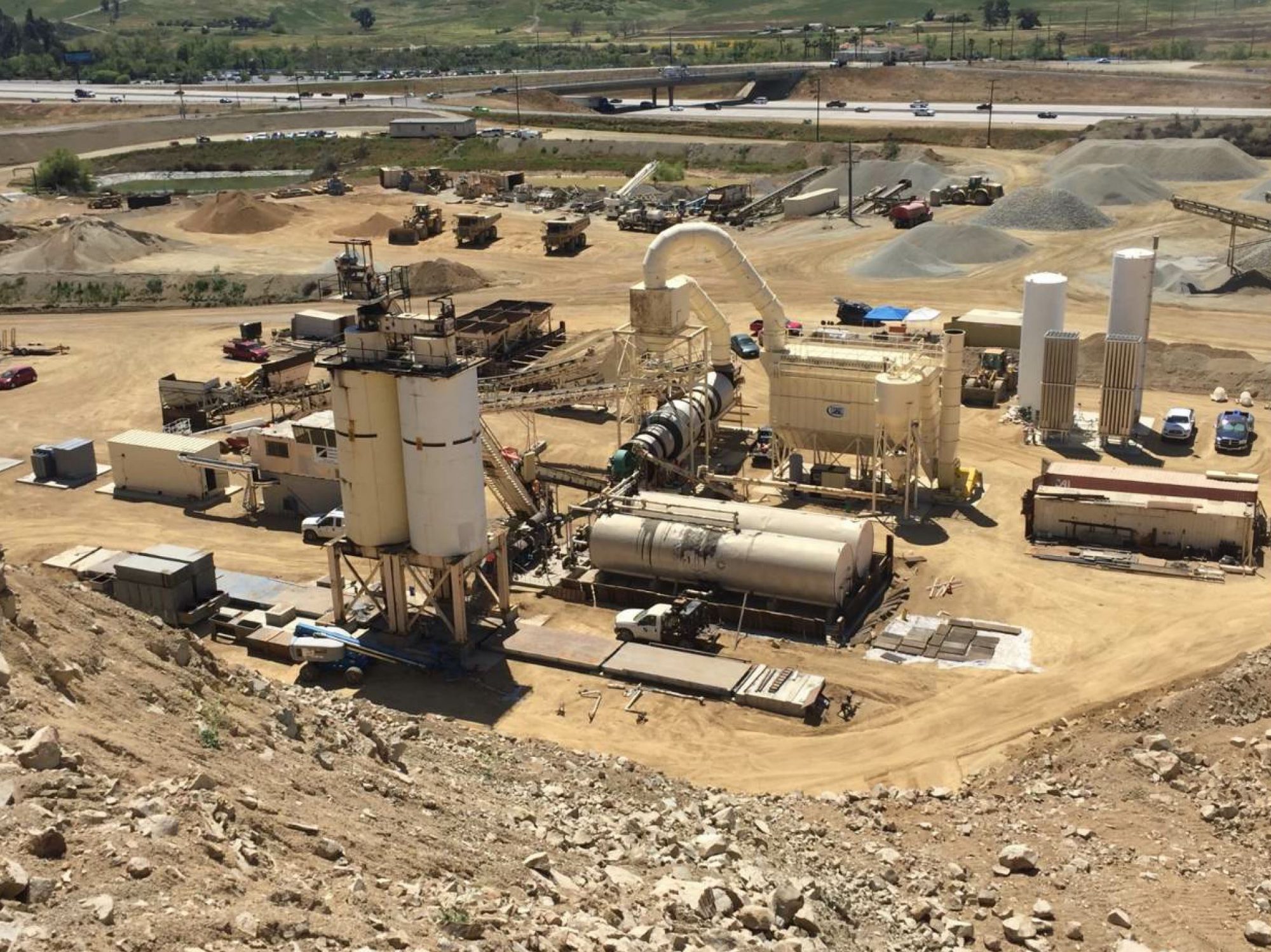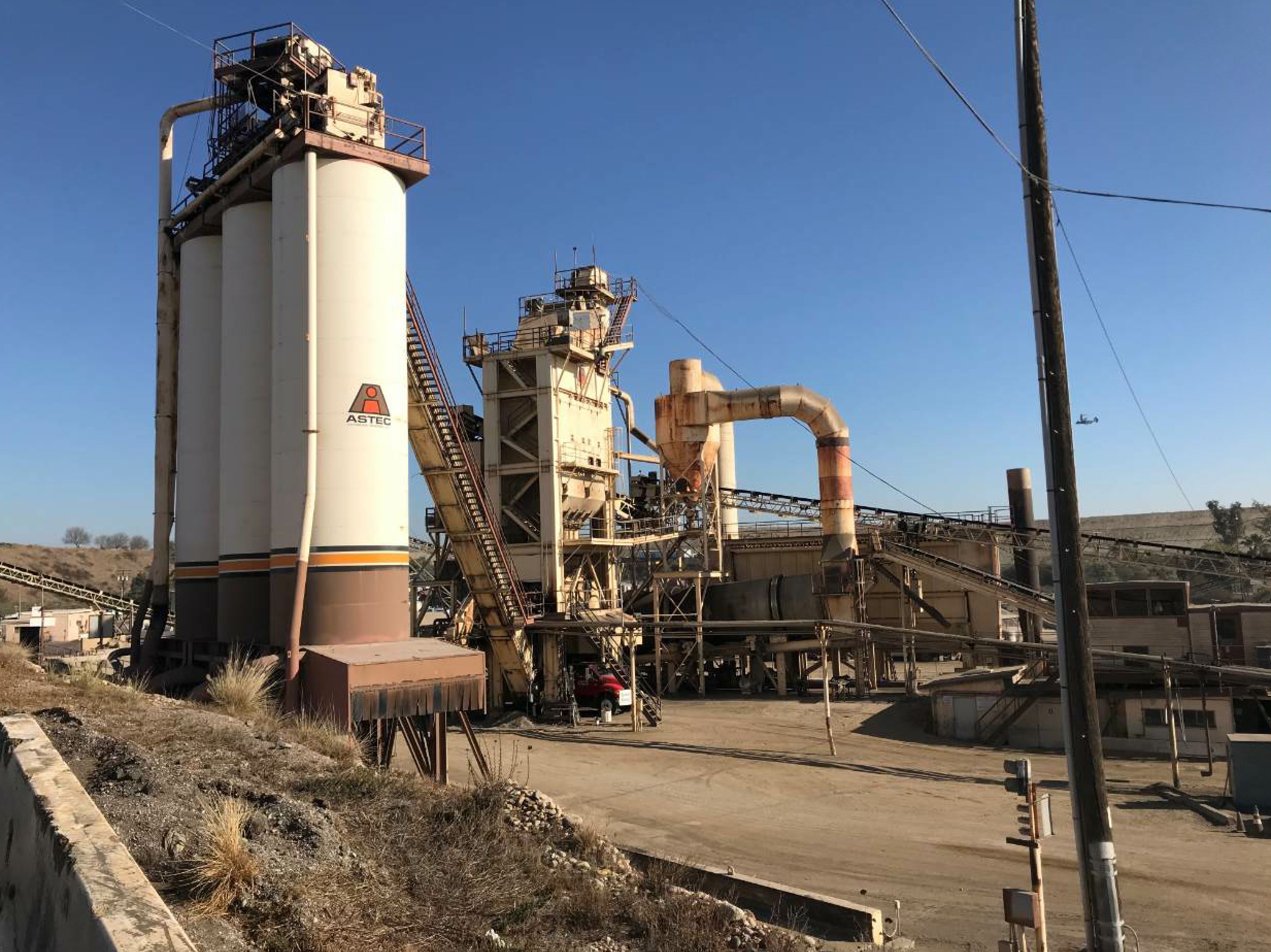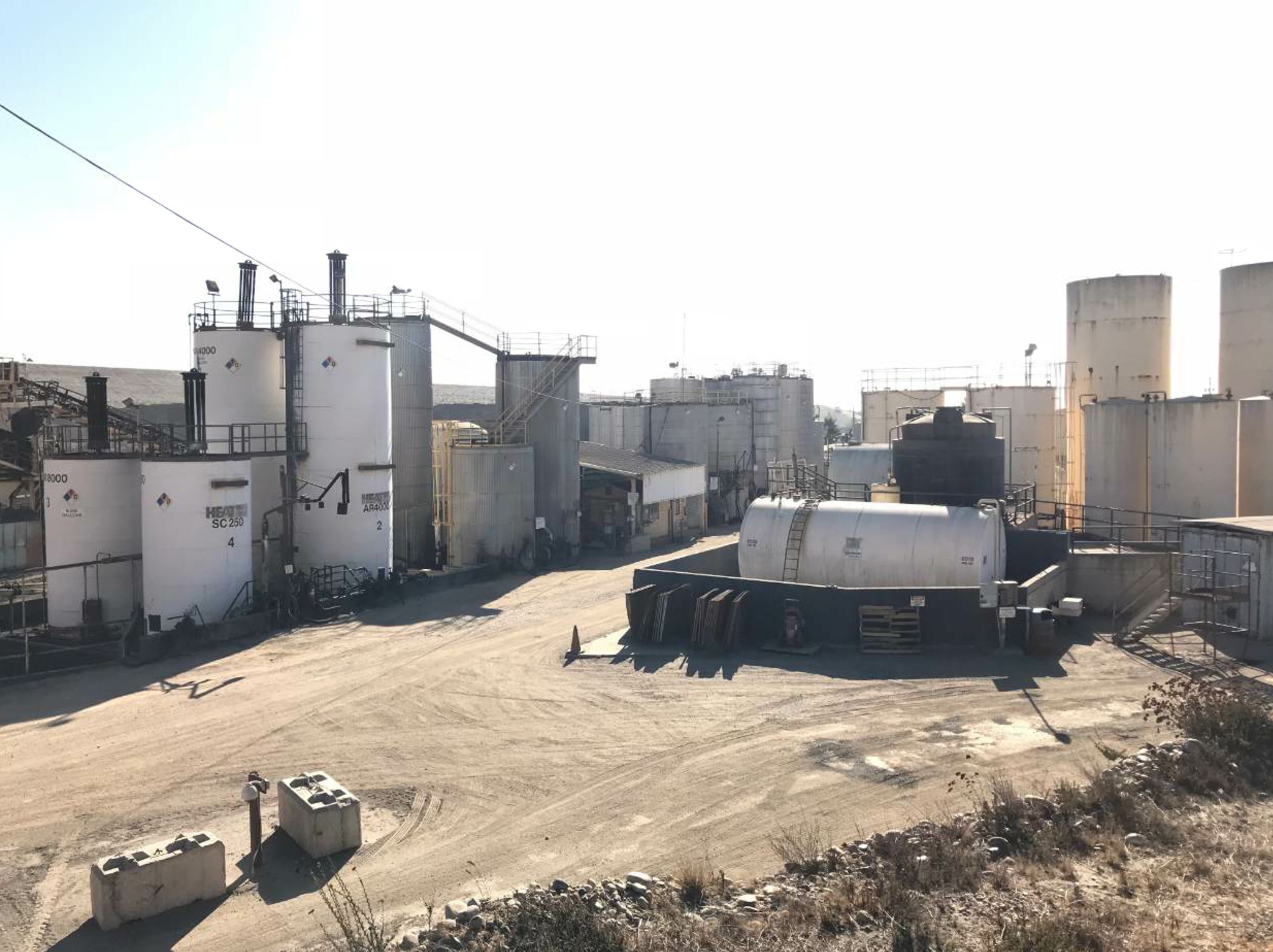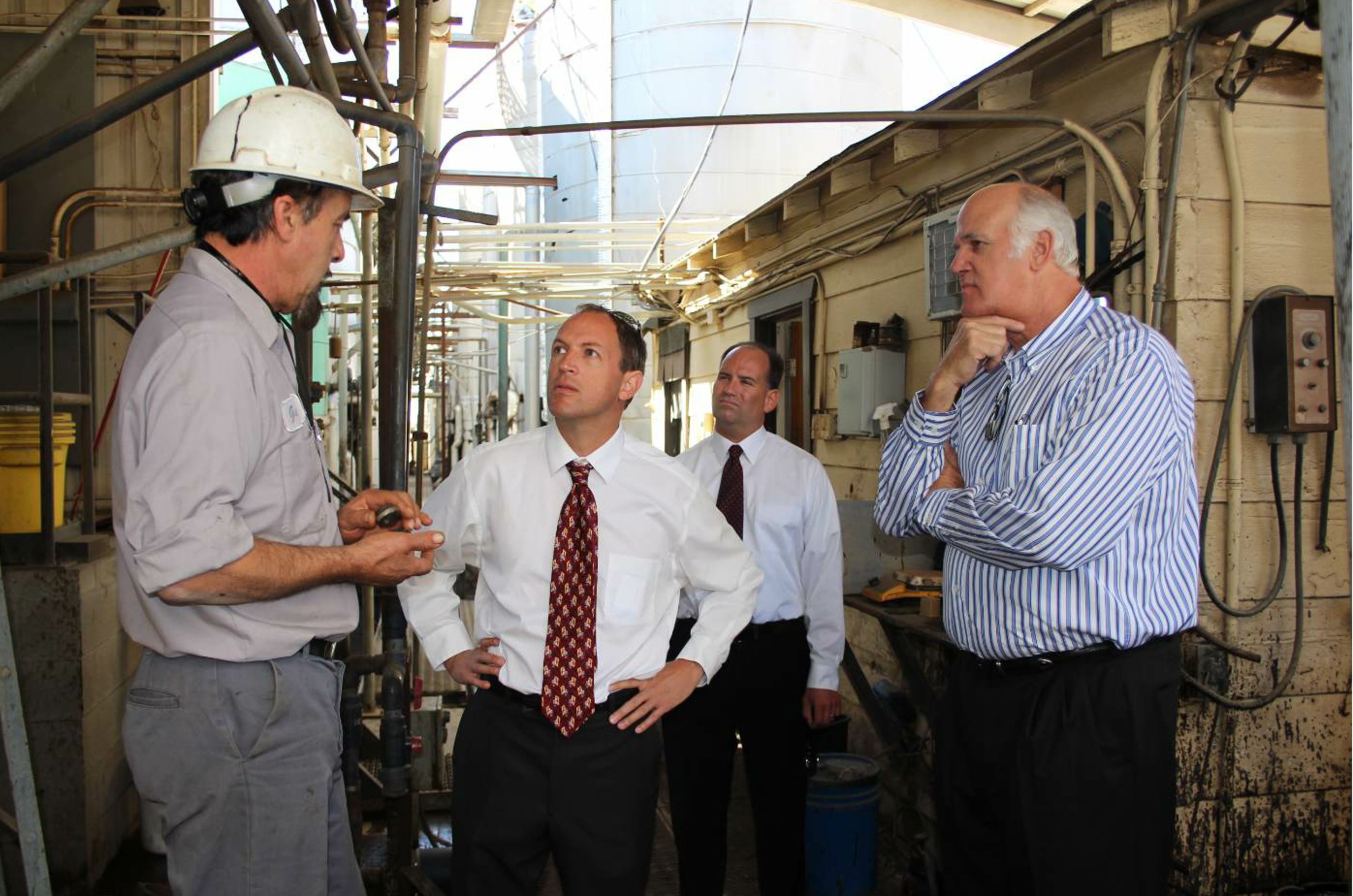California Commercial Asphalt Strategizes Ahead of SB1
BY AsphaltPro Staff

Since the California Legislature approved the Road and Repair Accountability Act in April of 2017, California Commercial Asphalt in San Diego has been busy.
Also known as SB1, the bill is expected to increase state revenues for California’s transportation system by an average of $5.2 billion each year over the next decade through gas and diesel taxes, as well as new vehicle taxes and fees.
To prepare for this additional funding, California Commercial Asphalt (CCA) has put into motion a number of strategic moves, including taking over operations at a plant in Coachella Valley, establishing a new plant in Elsinore, and making some important logistical changes in San Diego.
“SB1 will increase the overall asphalt market in the state,” said CCA General Manager John Greenwood, “so we want to prepare for that and grow our market share in areas where we haven’t had market share before.”
Strength in Strategy

CCA’s Miramar plant is one of three the company operates in the greater San Diego area.
Strategy has always played an important role in CCA’s business plan.
The company started in 1909 when George Daley started GR Daley hauling services with five teams of employees, 10 lead horses and three range wagons.
“It only took a couple years for the business to mushroom into a booming paving business,” said CCA President Don Daley Jr. “His work included some of San Diego’s most important contracts, and he won business as far as El Centro and Merced.”
From there, the paving company evolved into a full-service construction company by 1930. It also was mining its own materials and manufacturing HMA for the company’s own use.
When George Daley passed away in 1957, his sons Don and Lawrence took over the business. In 1983, when aggregate began to run low at the company’s Murphy Canyon quarry, HG Fenton Company–a full service aggregate and concrete company–presented Daley Corporation with an opportunity to put a hot mix plant on Fenton’s property in Carroll Canyon, San Diego.
Don Daley Sr. thought this would be an ideal opportunity for his two sons, John and Don Daley Jr., to start a new company to manufacture asphalt for other paving contractors. And California Commercial Asphalt Corporation was born.
Today, the company has five asphalt plants (two batch plants and three drum plants) and a rubber plant. Three plants are located in the greater San Diego area, one in Elsinore and one in Coachella Valley.

CCA also produces emulsion and sealcoat materials. This is CCA’s emulsion plant.
At its plants, CCA produces a wide range of mixes, including rubberized, conventional and warm mix asphalt, as well as high RAP mixes, porous asphalt, coated chips, emulsion, sealcoat–all of which are produced at each of its plant locations.
The company, which employs more than 150 people, also performs asphalt laydown and hauling.
Daley estimates that two thirds of the company’s business is asphalt production and the remaining one third, contracting. About one quarter of the mix it makes is laid by its own crews, usually on municipal, commercial and private jobs, he adds.
“Typically, our crews do a lot of municipal and agency work, as well as private development,” Greenwood said. “We’re doing more Caltrans work, but we also have a lot of good customers already filling that need.”
In 2017, Greenwood estimates the company’s two full-time asphalt laydown crews (35 employees total) laid around 250,000 tons.
The company also has around 50 haul trucks and can broker up to 200 trucks a day, if needed. Greenwood estimates that there are between 100 and 150 trucks going through its plants on a daily basis, bringing in aggregates and hauling out hot mix.
Many of the company’s customers use CCA’s hauling service, Greenwood said.
“Having access to that many trucks–having that control–is huge,” Greenwood said, “because we’re ultimately a logistics business.”
Even to this day, running CCA successfully relies on planning, logistics and strategy.
In With the New

In addition to producing mix, CCA also has its own laydown crews. About one quarter of the mix it makes is laid by its own crews, usually on municipal, commercial and private jobs.
To prepare for a boost in business with the passage of SB1, CCA has been very busy for the past few years.
Two years ago, the company took over operations at a plant in Coachella Valley, opening up a new market for CCA. “Coachella Valley is a great market for asphalt,” Greenwood said, adding that there is a limited number of competitors in that area.
It also moved a plant from Otay in San Diego to a new site in Elsinore, upgrading 65 percent of the plant’s components to meet today’s standards.
“We already had two plants strategically placed in San Diego,” Greenwood said–now three with the Lakeside location, “so moving that plant allowed us access to a new market.”
It was also located on a rock source CCA leases, and it’s conveniently located near Murrieta and Temecula, California.
The new plants service an area with a total population of around 2 million and a 2-million-ton market. Although the San Diego area population is 4 million, it’s also a 2-million-ton market.
“Adding those two plants almost doubled the size of our market capabilities,” Greenwood said. “SB1 spending will be huge in those areas.”
In another strategic move, CCA also just acquired a plant in Lakeside, within San Diego County.
“San Diego used to have rock sources within the city limits, but they’ve limited permitting new sources here,” Greenwood said. “The rock source of our joint venture partner–Hanson Aggregates–in the city was running low.”

CCA’s roots date back to 1909, when George Daley started GR Daley hauling services with five teams of employees, 10 lead horses and three range wagons.
This meant that the company had to haul aggregates to its plant in the center of town from its other rock source, adding to haul time and overall costs.
“The most efficient way to send asphalt to the job is from the rock source to the job,” Greenwood said, “so we had to make a shift and find a way to put a plant near our partner’s rock source to save on logistics.”
So, in October, CCA acquired a competitor’s plant that was located right next to Hanson’s rock source.
“We were already importing materials from that rock source to all of our plants,” Greenwood said. “Without the acquisition, we would have had to shut down our plant in the center of town, move it and permit it, and we’d lose a year of production for that plant.”
By acquiring the Lakeside plant–a 2008 Astec double drum plant with a new burner and hot oil heater–CCA was able to keep its existing plant in the center of town running, as well as start producing mix at the newly acquired plant only weeks after the sale went through.
Already, the company has begun to divert sales to the new plant from its existing plant in the city center, a 35-year-old Standard Havens plant the company plans to wind down and eventually close over the course of the next year.
To staff the new plant, CCA hired three of the employees working at the plant under its previous ownership.
RAP, Rubber and the Road to the Future

The CalAPA delegation poses with U.S. Rep. Duncan Hunter (CA-50) during the Transportation Construction Coalition “fly-in” held March 17 and 18, 2017, in Washington, D.C. Pictured, from left to right, are Don L. Daley III, ATP General Engineering (CalAPA Legislative Committee Chair); Scott Metcalf, Ergon; Steve Ward, Pavement Recycling Systems; Don L. Daley Jr., California Commercial Asphalt; Hunter; Len Nawrocki, Valero (CalAPA 2017 PAC Committee Chair); Brian Handshoe, Kenco Engineering Inc. (2018 CalAPA PAC Committee Chair); and John Greenwood, California Commercial Asphalt (CalAPA Immediate Past Chairman). Photo by the California Asphalt Pavement Association (CalAPA) – used with permission.
Even in CCA’s existing plants, keeping an eye on legislative activities, market changes and DOT trends is imperative.
“There have been a lot of different pushes toward using more RAP,” Greenwood said, adding that Caltrans allows up to 40 percent in base course mixes and up to 25 percent in surface courses. “Historically, there’s been a stigma with RAP, but ultimately RAP is as simple as it was to produce that asphalt the first time around. Just because something has been sitting in the RAP pile for years doesn’t mean it can’t be broken down to its original components. There should be no stigma, as long as it’s done properly.”
In order to support higher and higher percentages of RAP, CCA upgraded a lot of its environmental controls to eliminate blue smoke when running RAP and more temperature controls, VFDs and flow meters. They also segregate their RAP into multiple feeders.
But, Greenwood is also aware that Caltrans does not allow RAP to be used in rubberized mixes, which is one of Caltrans’ preferred mix types.
“There’s been a push to keep tires out of landfills, so California legislation is trying to mandate rubber in all conventional mixes,” Greenwood said. “But right now, we aren’t allowed to do both [RAP and rubber].”
But, after some trial batches, Greenwood believes it’s possible.
“There’s a lot of new technology out there that allows you to do rubberized mixes with RAP and make a very good product,” Greenwood said. And the trial batches look promising.
However, there hasn’t been a suitable pilot project to pave this mix design due to the nature of the mix. “Rubberized asphalt is a superior but expensive product,” Greedwood said. “Adding RAP to that mix makes it more viable for other agencies as well as the private sector.”
“I would hope that California would explore the possibility of combining rubber binder and RAP,” Greenwood said, “because it’s actually a great combination and makes a very good, more cost-effective product that will last a long time on the road.”
The Secret to Strategic Planning

CCA participates in a number of industry initiatives, including giving plant tours to lawmakers. Photo by the California Asphalt Pavement Association (CalAPA) – used with permission.
CCA is also well-known for its involvement in the asphalt industry at large. Daley is very active in NAPA and attends the NAPA fly-in each spring (this year in San Diego), and Greenwood is the former chairman of CalAPA and is still on the board.
“It’s important for our company and our industry to put forward a strong single voice,” Greenwood said. “It’s easy for agencies to butt heads with a single operator, but when an association like NAPA or CalAPA gets involved, there’s one unified voice.”
“CCA understands the importance of getting involved legislatively,” said California Asphalt Pavement Association Executive Director Russell Snyder. “They’re proactive and recognized as industry leaders in that regard.”
In fact, Daley was recognized as one of NAPA’s first-ever recipients of its Asphalt Ambassador Commendation back in 2013.
“Don [Daley] has always felt very strongly about involvement at the association level,” Greenwood said. “He really leads by example.”

Don Daley Jr., (left) was recognized with NAPA’s Asphalt Ambassador Commendation in 2014. Here, he sits next to NAPA Executive Vice President Jay Hansen at NAPA’s Annual Meeting. Photo by the California Asphalt Pavement Association (CalAPA) – used with permission.
“Earning the Asphalt Ambassador Commendation recognizes industry leaders who have build cooperative, lasting relationships with local, state, and federal lawmakers in an effort to educate governments on the asphalt industry,” said NAPA’s Chairman of the Board at the time, John Keating. “Asphalt Ambassadors are the embodiment of a grassroots advocate for the industry. …Without their involvement, the asphalt industry would not be positioned as well as it is today.”
Day by day, year by year, plant by plant and award by award, California Commercial Asphalt shows us how important it is to support the asphalt industry in general, because when the industry wins, we all win.
